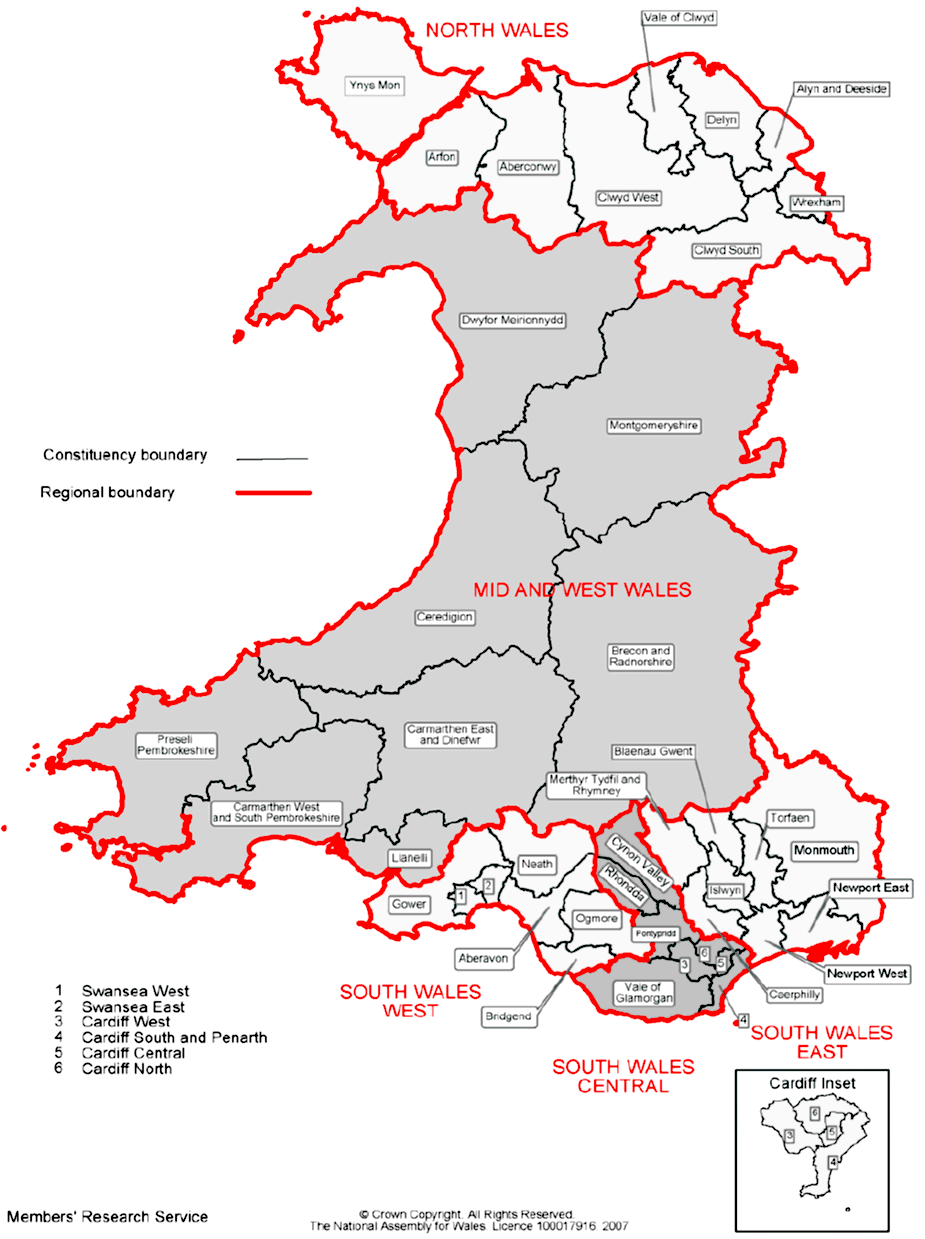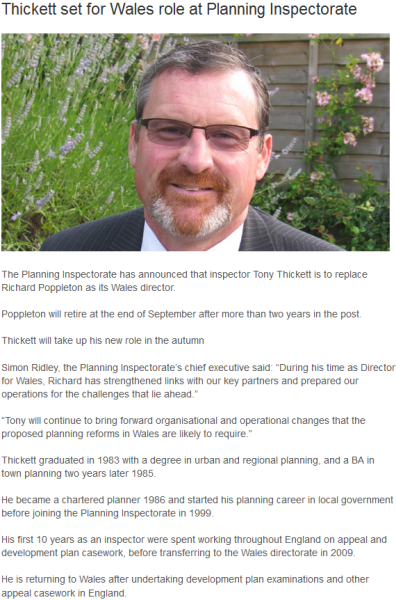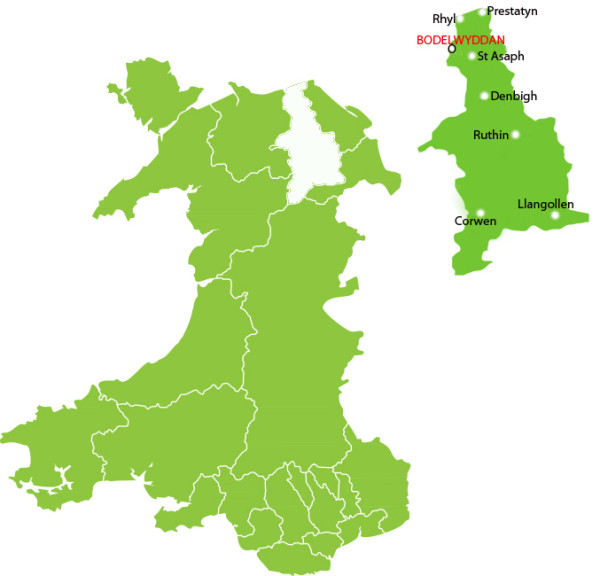This post re-visits a subject I dealt with in September 2012. (Unfortunately, the original comments and other features were lost when Google pulled the plug on my ear lier blog in December 2012. See sidebar) The reason I am returning to the subject is that, on the one hand, there has been no change for the better, yet on the other hand, there has been a change for the worse. Put it together and it gives a stronger case in 2015 for regional parties than when I originally mooted the idea almost three years ago.
lier blog in December 2012. See sidebar) The reason I am returning to the subject is that, on the one hand, there has been no change for the better, yet on the other hand, there has been a change for the worse. Put it together and it gives a stronger case in 2015 for regional parties than when I originally mooted the idea almost three years ago.
There are a number of reasons for promoting the case for regional parties standing in the ‘Welsh’ Assembly elections of 2016. I try to deal with them in the various sections below. The map on the right will help you understand the boundaries, click on it to enlarge it.
1. SHAM DEVOLUTION
The first of those reasons is one that I dealt with back in 2012, namely that devolution is a sham. Wales is more firmly under England’s control than ever, but now it’s done through civil servants taking orders from London yet doubling as ‘advisors’ to the self-deluding ‘ministers’ of the ‘Welsh’ Government. In reality, of course, these civil servants / advisors are relaying orders. It is a charade of the kind we would have found in the old East Germany, or any country run by a regime reliant on US support.
Among the many agencies of this sham devolution I have dealt with, one that has received more attention than most, is the Planning Inspectorate. (To find the many articles I have written on the subject type ‘Planning Inspectorate’ in the Search box at the top of the sidebar.) It is this agency that facilitates the colonisation of Wales with its bullying of our local councillors (or working with alien and eager senior officers), justifying building new homes we don’t need with ludicrously inflated population ‘projections’, or reduced household (size) estimates.
To keep up the pretence of ‘devolution’ the Planning Inspectorate maintains an office in Cardiff, it even has a few Welsh planning inspectors, but this is all window-dressing. As we saw with the review of the Local Development Plan for Denbighshire. Two inspectors were involved in assessing the protests of the local council, which argued that the 2011 census showed the county did not need the number of new homes the Planning Inspectorate had demanded. Read about it here.
The two inspectors involved in the ‘assessment’ of March 2014 were Anthony Thickett (see panel) and Gwynedd Thomas. Within a few months Thickett was appointed chief inspector for the Wales region of the Planning Inspectorate. Poor old Gwynedd Thomas was there just to add a little local colour, in the hope of disguising that this was part of the colonisation process, and all determined in London.
It doesn’t matter how we look at, What we have in Wales is a system designed to frustrate Welsh ambitions rather than satisfy them. It is a system of devolution for the benefit of England. And this explains why the ‘Welsh’ Government can do nothing to serve Welsh interests if that might work against English interests, yet agencies like the Planning Inspectorate are daily working in England’s interests against Wales.
The ‘Welsh’ Government is, like poor Gwynedd Thomas, nothing more than a fig leaf for this colonialist reality; it’s only real power lies in being able to distribute funding handed down to it. Yet far too much of this money currently goes to Cardiff or to Labour’s cronies and hangers-on in our irredeemably corrupt Third Sector.
2. THE ‘WELSH’ LABOUR PARTY
Sham devolution of course needs willing participants in the country being flim-flammed, and this is where the ‘Welsh’ Labour Party comes into the picture. Over many, many years I have made my feelings known on this, the most corrupt political party in the Western world, but if anyone is still in any doubt as to the nature of the beast, then let them read Why I Detest the ‘Welsh’ Labour Party, The ‘Welsh’ Labour Party and its Evil Empire, Merthyr: All Aboard the ‘Welsh’ Labour Gravy Train, or more recently, ‘Welsh’ Labour and Social Enterprises – All Fall Down!.
It is the ‘Welsh’ Labour Party that, for sixteen years, has fronted the colonialist system of sham devolution I just mentioned. This explains why the only time we see the self-styled First Minister on UK-wide television is when he’s proving how loyal we Welsh are despite devolution (which for some reason, still worries many English!). Such as welcoming Bet Windsor to Wales, or spouting BritNat bollocks during last year’s Scottish independence referendum campaign. The man is an embarrassment to all right-thinking Welsh.
One feature of this sham devolution is the growth of Cardiff, due to it serving as the ‘capital’, and because so much of the colonial bureaucracy is centred there. Though this can have a damaging effect on other areas.
I travel around Wales much more than most people, and one thing that strikes me whether I’m in Llandudno, Newtown or Haverfordwest is that on any contract connected with or funded by an agency based in Cardiff, the hoardings tell me that the estate agent dealing with the sale or, in the case of a new project, the company that drew up the plans and others, will also be found in Cardiff. Suggesting to me that companies based in Cardiff have an unfair advantage when it comes to these civil servants drawing up lists of ‘approved’ estate agents, contractors, architects, and others, or else we dealing with a form of favouritism that comes close to corruption. But this Cardiff bias can take other forms.
I am indebted to a correspondent in regular contact with the aforementioned civil servants for a recent example of the way Cardiff is favoured above other areas. Regular readers of this blog will be aware of the Housing (Wales) Act 2014. Among the provisions of the Act is a new register of private landlords. This work – and the jobs it will generate – has been allocated to Cardiff City Council, without any tendering process. Why should the richest area of Wales be gifted yet more jobs when this work could have been done by any local authority? And who made the decision?
Though an irony in this situation is that even the Conservative and Unionist Party, the party of the City and big business, has finally conceded that England has an economic imbalance, with too much of the country’s wealth and power accumulated in London and the south east. Hence the talk of investing hundreds of billions of pounds in HS2 and Northern ‘Powerhouses’. Yet here in Wales, we are replicating the system England is now seeking to remedy!
3. PLAID CYMRU
My feelings on Plaid are equally well documented. I suppose Plaid Cymru: Ninety Wasted Years, from October last year, sums it up as well as anything I’ve written, but use the Search box atop the sidebar to find other posts. Nothing has improved since I wrote that piece. In this year’s General Election Plaid Cymru again performed miserably, dealt with in Election 2015: Plaid Cymru Fails, Again.
And from all quarters comes news that that Plaid Cymru continues to be the most impotent ‘national’ party in Europe, afraid of upsetting anyone. Here’s one recent example that says it pretty well.
Followers of Welsh public life will be aware of a growing problem in local government that sees senior officers take over the running of certain councils. Nowhere has this trend been more apparent than in Carmarthenshire, where the council has for some years been run by the chief executive, Mark James, with the approval of the leaders of the parties in coalition there, Labour and ‘Independents’. But recently, after a change of leadership in the local Labour Party, there was a falling-out between the former love-birds and Independent leader Meryl Gravel began smooching Plaid Cymru, which resulted in a new coalition between the two.
With Plaid Cymru the larger of the parties, and Plaid’s Emlyn Dole named council leader in May, most people expected things to change in Carmarthenshire but that, alas, has not happened. It appears to be business as before, as this little cameo, received from a reliable source, illustrates.
The trade union Unison, ” . . . had to wait 2 months to get a meeting with Dole. There were a number of items on the agenda (employment issues and the council’s plans for publicly owned assets such as Parc Howard in Llanelli). To Unison’s surprise, waiting to greet them in Dole’s office was Mark James, although the union had asked for a private meeting with the leader. The meeting did not go well.”
Emlyn Dole’s submission to The Ultimate Authority may be connected with his little ‘difficulty’, for Plaid’s leader in the seat where Gwynfor Evans won that famous 1966 victory has been caught flouting planning regulations. But never mind, for Plaid Cymru has not forgotten its primary role – sticking up for Labour. As I reminded people in my June 28th post Vote Plaid Cymru – Get Labour’, and as Plaid itself continues to remind us.
Just last Saturday, at the commemoration of the 1911 Llanelli Riots, local Labour MP Nia Griffith was getting a bit of stick from some in the crowd for making a big noise about the Tories’ austerity measures but neglecting to inform her listeners that she had abstained when presented with the chance to show her ‘opposition’ in the House of Commons vote a few weeks ago. Who rode to her rescue? Helen Mary Jones, the Plaid candidate for Llanelli in next year’s Assembly election, and Vaughan Williams, who failed so miserably to win the seat in May this year.
Plaid Cymru is now more of an asset to England than to Wales. From England’s perspective Plaid Cymru is the perfect ‘in-our-pocket’ regional party. That’s because it can still attract the votes of many who want independence / greater devolution, or who care about Welsh cultural identity, but for all sorts of reasons Plaid Cymru will never get more than 25% of the vote, even in the most favourable circumstances, yet – in the absence of an alternative – it can still be presented as ‘the Welsh nationalist party’.
If there was any danger of Plaid Cymru collapsing, perhaps due to the emergence of that alternative national party, then it would be in our masters’ interests to keep Plaid Cymru alive. It may already be happening.
4. UKIP
Finally we come to perhaps the major difference today from the situation prevailing when I wrote the earlier piece on regional parties back in December 2012. Then there was a perception that Ukip, being primarily an anti-EU party, would do well in European elections, but only European elections.
The General Election earlier this year taught us the fallacy of that belief as we saw the Ukip vote in Wales reach 13.6%, and in so doing exceed the Plaid Cymru share of the vote. But this increase in Ukip vote has been aided by the collapse of the Liberal Democrats and a weakening of the Labour Party, which was of course almost wiped out in Scotland. To help you understand how things have changed I’ve compiled a table showing the vote shares for the major parties in Wales over the five most recent elections. (The two figures shown for 2011 represent the constituency vote and the regional vote.)
The Labour Party is in turmoil and, as I write this, looking likely to elect Jeremy Corbyn as leader; the Lib Dems are unlikely to recover any time soon, if ever; and Plaid Cymru seems doomed to a slow, lingering death. Few of those turning away from Labour and Lib Dems find Plaid Cymru attractive (hardly surprising seeing as long-time Plaid Cymru voters are deserting the party), and while some of those abandoning Labour, Lib Dems and Plaid will simply not vote, many will turn to the Tories or Ukip.
One thing’s for sure, Labour will definitely not have a majority after next year’s election, and may have difficulty forming a coalition with Plaid Cymru and / or Liberal Democrats. Taking us into uncharted territory, but also presenting great opportunities.
REGIONAL PARTIES
Regional parties contesting regional list seats are the only possible way to address the various problems listed above, the only way to ensure a more equitable Wales in which Labour is not completely dominant, with the added advantage of checking the advance of Ukip.
We can be sure that Ukip will view the list for the north as one its best hopes of winning Assembly seats, especially with the party’s local hetman, Nathan Gill MEP, being domiciled on Ynys Môn. So the first regional party I want to propose is for the north. Yes, I can already hear people asking, ‘What does Arfon have in common with Deeside?’ Short answer would be that across the north you will hear, ‘Everything is down south’. This will be Ukip’s message next year to northern voters. It can also be  the message of an alliance made up of people with roots in northern Wales, committed to serving the area, and hopefully objecting to the A55 corridor becoming a planned commuter belt. Because we can be sure Ukip won’t object! Neither will the other parties. (Click on image to enlarge.)
the message of an alliance made up of people with roots in northern Wales, committed to serving the area, and hopefully objecting to the A55 corridor becoming a planned commuter belt. Because we can be sure Ukip won’t object! Neither will the other parties. (Click on image to enlarge.)
Another area where Ukip did well in 2014 and again this year is the Valleys. While the elected leaders in the region seem happy to surrender to Cardiff’s city state ambitions I’m sure there are many others in the Valleys who believe their towns and villages deserve better than a future as dormitory communities. This could be one message for a Valleys grouping. Another message for Labour could be, ‘Instead of using EU and other funding to help your cronies capitalise on our deprivation, use it to help us and our communities – the reason the EU gave it to us’.
The third region is obviously the Swansea Bay conurbation.
What I am suggesting is not formal political parties in the accepted sense. I am arguing for ad hoc regional groups with no ambitions beyond using their voice to demand fair shares for all, something that could perhaps be monitored by publishing regular figures for public spending and jobs created in each region. Because as I say, the only real power in this system of sham devolution is the power to divvy up the hand-outs. Which means that going down to Cardiff docks to play politics, to pretend that it’s a real parliament, is a waste of time. Focus on the money.
The suggestion of regional parties has both greater urgency and greater potential now than when I first mooted the subject because of the decline of three parties and the unattractiveness of those likely to gain from that decline. (And here I include the Greens.) I further predict that regional parties would get support from some of those who would not otherwise vote next year. And there’s guaranteed publicity in the interest that can be predicted from the local media.
To gather enough like-minded individuals in order to compile a raft of regional list candidates should be relatively easy, there’s no great expense involved, and for just nine months of work the rewards could be great. And with Welsh politics in a state of flux not seen in living memory, who knows where it might lead? And if that doesn’t persuade you, then do you really want to vote for any of the failed parties, or the unattractive alternatives I’ve dealt with here?








